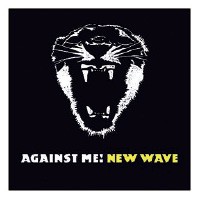I spent this past New Year’s Eve at a party full of Los Angelenos five to 10 years my junior, young men and women just establishing themselves professionally and hanging on to the last of their 20s. Sometime after midnight — long after midnight, according to the battalion of empty beer bottles and broken-stemmed wine glasses — a group of about 10 of these youngsters huddled together in a mass group hug and caterwauled the chorus of “No One’s Gonna Love You (More Than I Do),” by the Seattle-via-South Carolina group Band of Horses. That night, the song served as these friends’ theme song: They serenaded each other loudly and drunkenly, of course, but also sweetly and affectionately.
This snapshot says a lot about Band of Horses’ music as well as its fans. If these friends speak for the band’s large and loyal audience, who are known to sing along loudly at the band’s sold-out shows, then listeners are drawn to Band of Horses’ folksy, dramatic indie rock because they want their lives to be epic and meaningful, their loves and dreams championed in big choruses and chiming guitar strums. There’s nothing wrong with this necessarily: People listen to and identify with music for better and worse reasons.
On the other hand, apparently no one singing that song on New Year’s was aware of its co-dependent desperation and its deep sense of loss and denial. “Things start splitting at the seams,” sings head Horse Ben Bridwell, “and now the whole thing’s tumbling down.” Or if they were aware of these darker shades of meaning, they chose to gloss over them that night and sing the chorus at face value, which Bridwell’s lyrics not only allow but encourage.
On Band of Horses’ 2006 debut, Everything All the Time, as well as on the 2007 follow-up, Cease To Begin (on which “No One’s Gonna Love You” appears), he writes and sings about specific people and places but leaves enough room in his lyrics for various interpretations and identifications. Of course, grandiose choruses like “No one’s gonna love you more than I do” and “The world is such a beautiful place” (from “Ode to LRC”) certainly guide listeners, giving them sound bites to hang meaning on.
Beyond these outsize choruses, Bridwell conveys information and emotion primarily through musical means, despite the basic rootsiness of Band of Horses’ sound. Most of the songs sport traditional rock instrumentation: guitar, drums, bass, vox, occasionally keyboards. But Bridwell’s guitars chime like early U2, and he and the band managed to make the guitar and snare on “The Funeral,” a stand-out from Everything All the Time, sound skyscraper tall. That enormity can make otherwise humdrum lyrics sound powerful and poignant. They’re meant to be sung aloud by cheering audiences and celebrating friends.
Band of Horses hails originally from the Pacific Northwest indie scene, which encompasses Portland, Seattle, and surrounding cities. The group began as a duo featuring Bridwell and drummer Mat Brooke, both of whom had played in the Seattle-based cult band Carissa’s Wierd. Brooke left the band shortly after the release of Everything All the Time to open a sports bar (he now plays in the group Grand Archives, whose debut is due next month on Sub Pop).
One of the stranger traits of Northwest indie, for better or for worse, is its somewhat academic sound: Many acts borrow from traditional American music but tend to denude it of any regional distinctions, as though folk can be communicated by nothing more than an acoustic guitar, country by subtle pedal steel. Some groups, like Modest Mouse and Built To Spill, have managed to incorporate these styles into a uniquely personal sound, but others, like Norfolk & Western and Death Cab for Cutie, sound placeless and often bland.
Band of Horses drew liberally but generally from folk and country music on Everything All the Time, and the result was a genial back-porch vibe on “Our Swords” and “St. Augustine” that could have been attached to any house in America. But that’s only half the story. Following the departure of Brooke, Bridwell moved from Seattle back to South Carolina, where he was born. The band recorded Cease To Begin in Asheville, North Carolina. The change in location is subtly evident in this collection of songs, in the lyrics (the title “Ode to LRC” refers to a regional newspaper) as well as the music (“The General Specific” is a stomping gospel with barrelhouse piano). The CD packaging even includes snapshots taken around Mount Pleasant, South Carolina.
While many bands benefit from such an influx of new sounds and ideas, Band of Horses actually lost some of its distinctiveness: Cease To Begin sounds less effective and less dramatic, and the big choruses are more like jam-band homilies than indie-specific declarations. There are some striking moments, such as the angry “Cigarettes, Wedding Bands” and the ruminative closer “Window Blues,” but the sentimentality that lurked behind the big moments on Everything All the Time comes to the forefront on Cease To Begin, making for some obvious rather than ambiguous moments. The one track that sounds most like the previous record is, of course, “No One’s Gonna Love You,” which makes the emotions listeners invest in the song partly a nostalgia for the larger, leaner sound of the year before.

